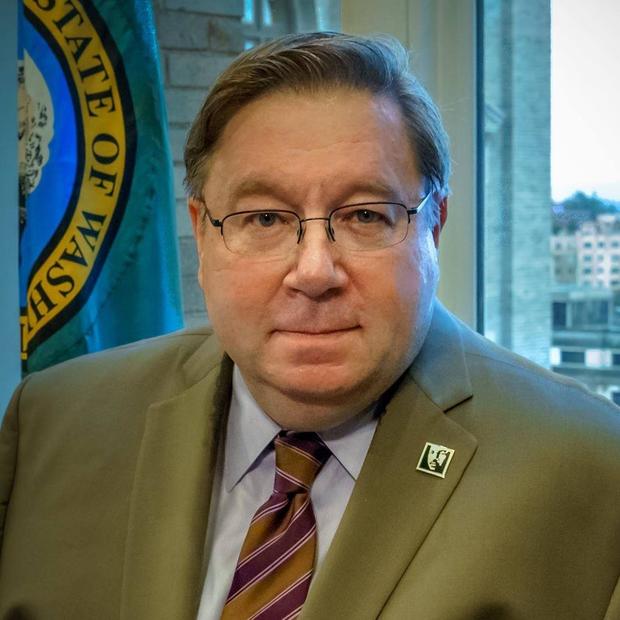As Barack Obama and John McCain prepare for their final debate this week, Canadians go to the polls today to elect a new prime minister, in all likelihood returning Conservative Stephen Harper, who hails from Alberta. It's not that Canadians are overly sanguine about global economics or immune to this year's rallying call for change. In fact, while Harper will probably have to form another minority government in Ottawa — one that may not be stable enough to last a full four years — an array of parties to the left of him are projected to garner more total votes but will lack enough seats in Parliament to form a left-of-center government. So things will mostly remain status quo. You can read more in this good primer by Joel Connelly, the resident Canadian expert at the Seattle Post-Intelligencer.
The undramatic outcome may explain Canadians' fascination with our own change-themed elections this year. A friend who recently returned to Eastern Canada confessed that rather than watching the national TV debate of the three potential PMs — the Conservatives' Harper, Liberal Stephane Dion, and New Democrat Jack Layton — she was magnetically drawn to watching the competing U.S. vice presidential debate of Delaware Sen. Joe Biden and Alaska Gov. Sarah Palin.
Canadians of all political hues have been glued to the American presidential race. Some of it is puzzlement at what's happened to their neighbor both domestically and internationally. I work on both sides of the border these days, and I recall a Canadian acquaintance after some Bush blunder saying sheepishly, "Frankly, we don't understand what is happening in your country. You're borrowing billions from the Chinese, you're fighting a war in a country that didn't attack you, and your president, please excuse me, is an embarrassment." And this was someone from Alberta, the Canadian province most comparable with Texas.
Our form of Cowboy Capitalism confounds even Canadian conservatives. They've shied away from the wholesale deregulation of financial services. Canadians have invested in the U.S. in many sectors, including banking, where two major Canadian banks (Toronto Dominion and Royal Bank of Canada) have found a fertile market in America. And the ubiquitous Blackberry has put a bit of Canadian technology in hands of millions of Americans.
The key difference is that Canadians still believe government has a vital role in society's well-being. The federal and British Columbia governments invested millions in a new deep-water port at Prince Rupert to attract container traffic headed for the Midwest hubs of Chicago and Memphis. Travel to Vancouver or Whistler these days and you will see crews busily working on high-capacity rail from the airport to downtown and expansion of the Sea-to-Ski Highway up to the alpine venues for the 2010 Winter Olympics. In Alberta, the provincial government is sitting on an energy-based multibillion-dollar surplus and announced this summer that it would invest $2 billion in carbon capture technology to combat greenhouse gas emissions and another $2 billion for public transportation. (Disclosure moment: I helped advise the province on these initiatives.)
There is no Tim Eyman north of the border, slapping limits on government spending. One reason, a friend speculates, is the Canadian universal health care system, which very visibly demonstrates that government can be an important part of the social compact. The Canadian health-care system may be plagued by long waits for certain services, but not even the generally fiscally conservative Harper government has suggested tampering with it. Another reason for Harper's popularity with the voters is the way he keeps his distance from the social-issue conservatives in his own party. It also helps that the left is split into two parties.
Canadians are still very concerned about bellicose American foreign policy under Bush. Former Canadian Consul General Roger Simmons talks proudly of how Canadians embraced hundreds of Americans stranded at Canadian airports when U.S. airspace was shut down immediately after the Sept. 11, 2001, attacks. But Canadians still can't understand our foray into Iraq. Canadians are not isolationists, and they've paid dearly with the lives of 97 Canadian soldiers killed in Afghanistan. They worry, however, that the misadventure in Iraq has made North America more vulnerable to extremist attacks, not less. They see a neighbor that was strong and proud now battered and uncertain.
The main reason for preserving the present government is economic. These days, Canada seems a land of opportunity. The Canadian manufacturing provinces, especially Ontario, mirror the impacts of the North American auto industry as it scrambles to survive. But as you move west, Alberta's unemployment, driven in large measure by the energy sector, hovers around 3.5 percent. In British Columbia, hundreds of millions are being poured into preparations for the Olympics, and Vancouver sparkles with economic vibrancy.
B.C. voters, by the way, tend to be Conservative as you get farther from the Lower Mainland but are split among the Liberal and New Democratic parties in the Vancouver area. The Liberal Party is in control of B.C. provincial politics, with the more leftish NDP (strong in B.C. and Ontario) in the process of making a comeback after some crushing earlier defeats. Regardless of political orientation, all Canadians have figured out there is an appropriate role for government in the 21st Century. We could learn from our neighbors to the north.


